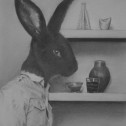The Man Behind the Scenes: Meeting John Banville
Speaking at York University, I had the privilege of chatting to Booker-prize winning novelist John Banville at York’s Festival of Ideas 2011. The Irish novelist and screenwriter, decidedly Ireland’s cream of the crop has penned remarkable novels including The Book of Evidence and The Sea, his eighteenth novel, which won the Man Booker prize in 2005. Just this year, Banville was awarded the Franz Kafka Prize. Also a master of short stories and theatre and film, Banville is a philosopher, often occupied with the nature of perception and the conflict between imagination and reality. Like Irish avant-garde writer, playwright, theatre director, and poet Samuel Beckett, Banville incorporates Irish characters and landscapes and intertwines them with European contexts and their histories.
Banville is known for his unique and captivating style. His crime fiction is intriguingly addictive. Interestingly, all of his crime fiction is written under his pseudonym Benjamin Black. His wit and humour forms part of his Irish charm and as he signs my book he cracks a smile and a joke. He explains to me the importance of getting character names right before proceeding with any novel. “If the character names are not 100% true to the character, the story is not going to work and you might as well forget it. You have to be true to your characters. Every author shares a kind of affinity with each character about which he writes.” Banville’s scenes and intense focus centres around Ireland’s weather. It is as if the climate has such a profound impact on his novelistic tones, that he has become part of the weather. It is perhaps his dark humour and murky mysticism combined with the chilling scenes which seasonally reflects Ireland in its colder months, for example. His dark comic personality mirrors this, but he insists “I love Ireland and there is no other place I’d rather be.”
Influenced by multilingual Russian novelist Vladimir Nabokov, Banville’s mission is to bring out intensely poetic styles in novel-writing and I have to admit that meeting him was equally poetic.






